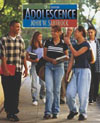1. Young children do what they think is right and do not do what they think is wrong in order to avoid punishment. The reasons for doing "right" change as we grow into and through the adolescent years. As a future parent, what can you do to foster this aspect of moral development in your children? http://www.urbanext.uiuc.edu/nibbles/challenges-moral.html http://ericps.ed.uiuc.edu/npin/library/1998/n00023/n00023.html 2. You are discussing issues of right and wrong, punishment, and moral reasoning in your philosophy class. Your instructor has broken the class into groups, and your group is assigned to evaluate arguments, pro and con, concerning the death penalty and to classify them according to Kohlberg's stages of moral reasoning. What are some of the arguments pro and con and how did your group classify them? http://deathpenaltyinfo.msu.edu/ 3. The nature and content of sex education instruction in public schools often is a lightening rod attracting large numbers of parents to school board meetings. In trying to explain why, your adolescent psychology professor mentions issues of moral education, the hidden curriculum, and character education. How do these concerns relate to the large parental turnout at school board meetings? http://www.educ.utas.edu.au/conferences/ed4conf99/strand-A/Ruthven.htm http://www.parentingteens.com/curriculum.shtml http://www.urbanext.uiuc.edu/SchoolsOnline/charactered.html | 


 2003 McGraw-Hill Higher Education
2003 McGraw-Hill Higher Education